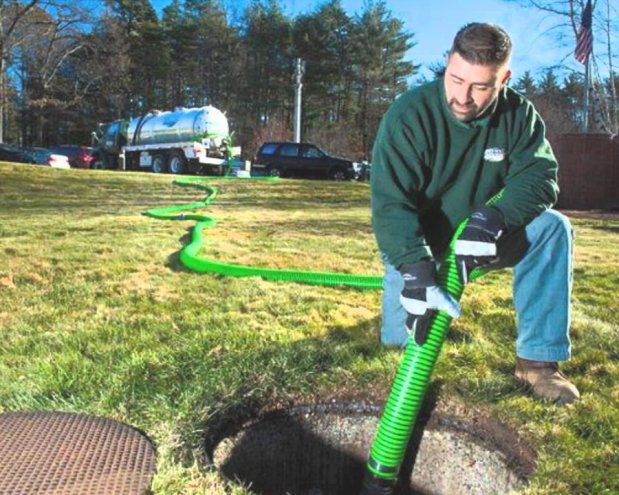
07
Your septic system plays a crucial role in your home's wastewater management. Whether you live in the countryside or an area without access to a public sewer system, your septic tank quietly manages waste, keeping your property clean and safe. But like any part of your home, your septic system needs regular attention. Understanding how each season affects your system can help you avoid costly problems. From septic tank pumping to septic tank cleaning and even new septic tank installation, staying ahead of seasonal changes ensures your system runs smoothly all year long.
Spring is the perfect time to inspect your septic system after the stress of winter. Heavy rainfall and melting snow can cause the ground to become saturated, putting extra pressure on your drain field. When the ground is saturated, wastewater may have trouble properly filtering, leading to back-ups or odors. To avoid problems:
Spring is also a great time to check if you’re due for septic tank pumping in Rock Hill—a necessary task every 3 to 5 years, depending on tank size and household usage.
In the summer months, septic systems often experience more use. Family gatherings, vacations, and outdoor activities can lead to higher water consumption, especially with more laundry and showers. This extra demand can stress your system. Here’s how to manage your septic system in summer.
Space out water usage throughout the day to prevent overloading the system. Fix leaking toilets or faucets to avoid continuous water flow into the tank. Keep vehicles and heavy equipment off the drain field to prevent soil compaction. If your system is aging or undersized for your current needs, summer might also be a good time to consider septic tank installation or an upgrade.
As temperatures begin to drop, it’s wise to prepare your septic system for winter. Fall is the season to take preventive measures that can save you from frozen pipes or backups during the cold months. Key fall maintenance tips include:
It’s also a good time to review your system’s overall health. If it’s outdated or showing signs of failure, schedule a professional inspection with Charlotte Septic Pros and consider whether a new septic tank installation might be needed before winter hits.
Winter can be the most challenging time for septic systems. Frozen ground and low temperatures can interfere with system function, especially if pipes aren’t insulated or tanks are too full. To keep your septic system healthy in winter:
While it’s not ideal to do major repairs in the winter, emergency services like septic tank pumping or septic tank cleaning in Weddington can still be done by professionals if needed.
No matter the season, a well-maintained septic system requires regular care. Routine septic tank cleaning and timely septic tank pumping help prevent overflows, odors, and costly repairs. And when your system reaches the end of its life, a professional septic tank installation ensures safe and effective wastewater treatment for years to come.
Being seasonally septic savvy means adapting your maintenance routine to the time of year. Each season brings its own challenges, but with the right care—whether it’s spring inspections, summer usage control, fall prep, or winter protection—you can keep your system running efficiently. Schedule regular septic tank pumping, stay on top of septic tank cleaning, and don’t hesitate to invest in a new septic tank installation if your system shows signs of failure. Your home and the environment will thank you.

12
A single slow drain in your home can feel like a minor inconvenience. Maybe the sink takes a little longer…
Read more
05
Are Slow Drains a Septic Issue or Just a Clog? Slow drains are one of those household problems that start…
Read more
02
What Septic Service Techs See That Homeowners Miss Most homeowners only think about their septic system when something goes wrong.…
Read more
21
Simple Habits That Protect Your Septic System A well-functioning septic system does its job quietly, but the moment something goes…
Read more
14
Pump Now or Pay Later: The Real Cost of Skipping Maintenance A properly functioning septic system is easy to forget…
Read more
11
Why Your Septic System Always Acts Up at the Worst Time Homeowners often feel that septic problems strike at the…
Read more
04
Early Warning Signs Your Septic Tank Needs Pumping For homeowners who rely on a septic system, routine maintenance is not…
Read more
29
Why Does My Septic System Smell Fine One Day and Terrible the Next? If you own a home with a…
Read more
19
Is Your Septic System Overdue? Simple Home Checks You Can Do Today For many homeowners, the septic system is a…
Read more
13
5 Signs Your Septic Tank Is Overdue for Pumping Your septic system works quietly behind the scenes, managing wastewater from…
Read more